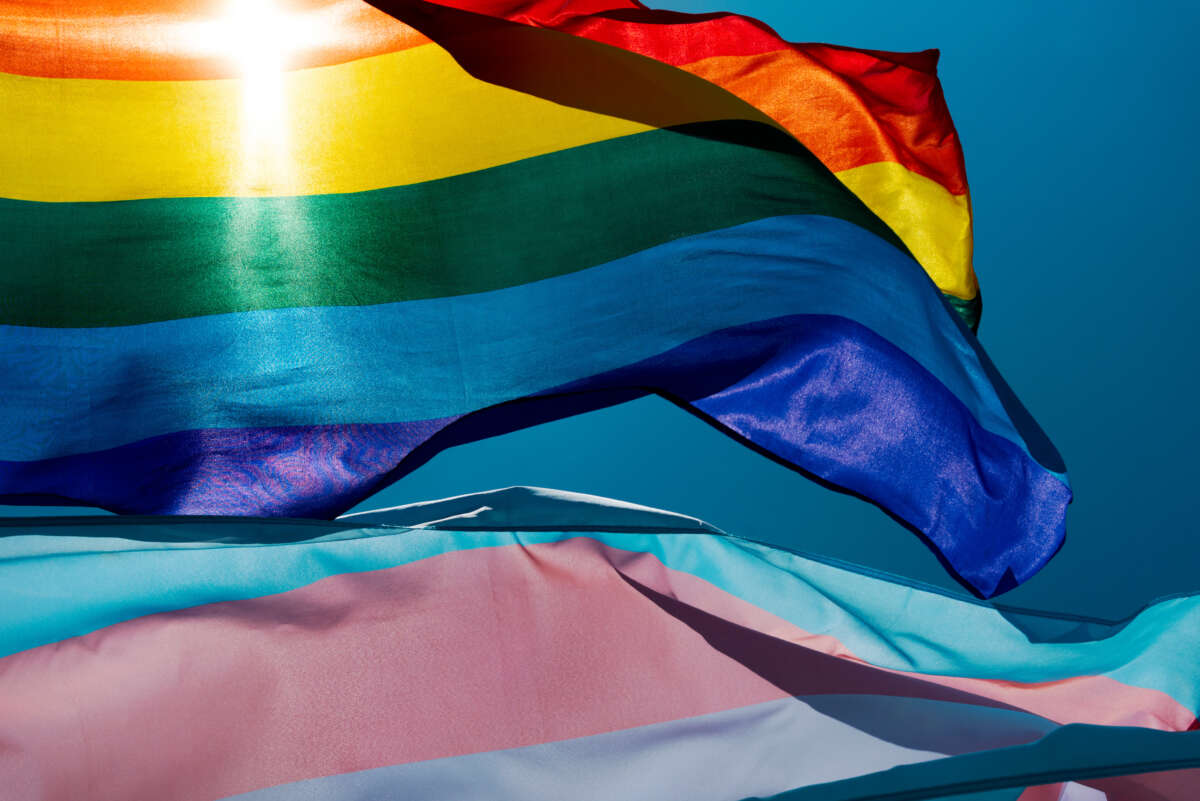On March 8, Iowa became the eighth state in the U.S. to pass a ban on gender-affirming health care for transgender youth. The bill is currently awaiting signature by Iowa Governor Kim Reynolds (R), who signed a restrictive transgender sports bill into law in 2022.
The health care ban is similar to bans that have been introduced across the country, and would prohibit trans youth from accessing medical care such as hormone replacement therapy, gender-affirming surgeries and puberty blockers.
Once the bill is signed, trans children currently taking hormone therapy would have 180 days to end treatment in the state. Studies have shown that being denied access to gender-affirming care puts trans youth at risk, and many advocates are concerned about the consequences that forced detransition will have on children’s mental health.
Over 2,000 Iowans packed the state Capitol earlier this month in protest of anti- trans bills, and hundreds of K-12 students from more than 26 schools coordinated walkouts to voice their dissent.
Jemma Bullock, co-founder of IowaWTF and a member of the Iowa Queer Student Alliance, told NBC News that, “There are people who are going to the Capitol and attending those public hearings about these bills — they have been teachers, psychiatrists, doctors, students, parents, administrators, all sorts of people who come and say, ‘This is harmful. This will have bad effects. This will cause bullying, it will cause depression and fear and it will not be safe for the LGBTQ+ community in our schools.’ And they just will not listen.”
Transgender advocates fear that attacks from right-wing lawmakers across the country are an eliminationist tactic with the end goal of eradicating trans people from public life.
“This heartless legislation puts craven politics ahead of the health and safety of young people, and should strike fear in the hearts of parents across Iowa,” the Human Rights Campaign (HRC) said in a press release.
The Iowa Senate also recently passed a bathroom bill that would prohibit trans kids from using bathrooms and locker rooms at school that don’t align with the sex they were assigned at birth. Advocates anticipate that the bill will be voted into law by the Republican-majority House, which was recently criticized by the HRC for passing a “Don’t Say Gay” bill. This bill, similar to Florida’s infamous “Don’t Say Gay” law, would bar educators from discussing issues related to sexual orientation and gender identity in classrooms.
Florida’s “Don’t Say Gay” law has had far-reaching negative consequences for teachers and school-age children. A Williams Institute and Clark University study found that 88 percent of parents of LGBTQIA+ kids were very or somewhat worried about the effects of the “Don’t Say Gay” law on their children, and more than half of parents surveyed have considered leaving the state because of the legislative attacks on LGBTQ kids. Despite concerns from parents and teachers, Florida’s GOP recently introduced three new bills that would expand its “Don’t Say Gay” law.
LGBTQ advocates have voiced similar concerns about the anti-trans legislation in Iowa, saying that these bills have the potential to drive LGBTQ people out of the state. If families of trans kids cannot leave the state or decide to stay, trans youth would have to travel out of state for care. At this moment, they would not be criminalized for doing so.
Minnesota, which borders Iowa, recently established a right to gender-affirming care for trans youth, making it a “trans refuge” state. Gov. Tim Walz (D) issued this executive order in direct response to Iowa’s recent anti-trans legislation, as Minnesota is anticipating an increase in patients from Iowa who travel to the state for gender-affirming care.
“I went to college in Iowa and I love it there so much. I am so sorry for yet another state enacting this cruelty,” said civil rights attorney Chase Strangio on Twitter in response to Iowa’s passage of the ban on gender-affirming care. “To my trans family please remember, we will care for each other we will fight for each other, and we will do whatever it takes to keep us alive.”
We have 9 days to raise $50,000 — we’re counting on your support!
For those who care about justice, liberation and even the very survival of our species, we must remember our power to take action.
We won’t pretend it’s the only thing you can or should do, but one small step is to pitch in to support Truthout — as one of the last remaining truly independent, nonprofit, reader-funded news platforms, your gift will help keep the facts flowing freely.
